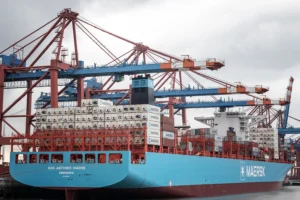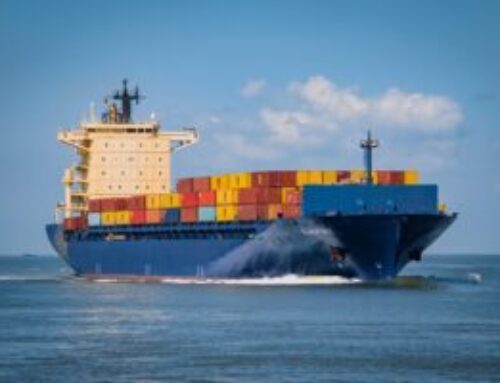Maersk Line Ltd., a subsidiary of the Danish shipping giant A.P. Moller-Maersk, has reached a settlement with the U.S. Labor Department following allegations it retaliated against a seaman who reported safety concerns. The company, which operates the world’s largest U.S.-flagged fleet of international containerships, faced accusations of dismissing a crew member from the Safmarine Mafadi for raising alarms about potential hazards on board.
According to the Labor Department’s findings, the whistleblower reported several issues to the U.S. Coast Guard in December 2020, including that “lifeboat block and releasing gear were inoperable, crew members were in possession of alcohol and drinking onboard, the emergency fire pump was not working, trainees were standing watch unsupervised, and the cargo hold bilge system needed repairs as it was causing flooding.” In March 2021, Maersk terminated the seaman’s employment, citing violation of a company policy that “require[d] seamen to report safety concerns to the company and allow it time to abate the conditions before reporting to the [U.S. Coast Guard] or other regulatory agencies.”
The Labor Department’s investigation, led by the Occupational Safety and Health Administration (OSHA), found reasonable cause to believe Maersk violated the Seaman’s Protection Act, which protects seamen from retaliation for reporting safety violations. OSHA concluded that the whistleblower was entitled to preliminary reinstatement; back pay with interest, compensatory damages, and punitive damages totaling over $707,000; and reasonable attorney’s fees.
Maersk denied the allegations or any wrongdoing, but it agreed to several conditions as part of the settlement. These include amending its policy to allow direct reporting of safety concerns to the Coast Guard without prior notification to the company and ensuring no retaliation against employees for such actions. Maersk will also provide additional training for supervisors on the revised policy and distribute OSHA guidelines to its crew members. The whistleblower also received a payment of an undisclosed amount pursuant to a separate agreement.
The Labor Department stressed the importance of protecting whistleblowers, with Solicitor of Labor Seema Nanda stating, “The Department of Labor will enforce workers’ protected rights as whistleblowers under federal law… No employer may violate whistleblower regulations or create policies that require employees to notify their employer before they report concerns to federal regulatory agencies. This seaman showed the kind of bravery for which mariners have long been known by raising concerns that, left unchecked, could have endangered everyone aboard the Safmarine Mafadi.”
Maersk and other companies should heed the warning that trying to stifle whistleblowers or retaliate against them can lead to serious consequences.
If you would like to learn more about the various paths to becoming a whistleblower or have information concerning potential fraud or misconduct, please do not hesitate to contact us. We will connect you with an experienced member of our whistleblower team for a free and confidential consultation.
Read Maersk Settles Whistleblower Retaliation Case with U.S. Labor Department at constantinecannon.com






Leave A Comment